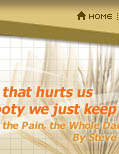Catfish and Mandala: A Two-Wheeled Voyage through the Landscape and Memory of Vietnam
by Andrew X. Pham
Overview
From the Publisher
Andrew X. Pham dreamed of becoming a writer. Born in Vietnam and raised in California, he held technical jobs at United Airlines-and always carried a letter of resignation in his briefcase. His father had been a POW of the Vietcong; his family came to America as "boat people." His sister committed suicide, prompting Andrew to quit his job. He sold all of his possessions and embarked on a year-long bicycle journey that took him through the Mexican desert, where he was treated as a bueno hermano, a "good brother"; around a thousand-mile loop from Narita to Kyoto in Japan; and, after five months and 2,357 miles, to Saigon, where he finds "nothing familiar in the bombed-out darkness." In Mexico he's treated kindly as a Vietnamito, though he shouts, "I'm American, Vietnamese American!" In Vietnam, he's taken for Japanese or Korean by his countrymen, except, of course, by his relatives, who doubt that as a Vietnamese he has the stamina to complete his journey ("Only Westerners can do it"); and in the United States he's considered anything but American. A vibrant, picaresque memoir written with narrative flair and a wonderful, eye-opening sense of adventure, Catfish and Mandala is an unforgettable search for cultural identity.
My thoughts
My favorite local used bookstore has closed. I am so sad!
When Budget Books was going out of business due to the owner retiring, I went browsing for anything I thought I couldn't live without. I came across this book in the travel section and picked it up for my friend Karyn, who may be traveling to Vietnam in the near future. I wanted to read it before I sent it on to her, so I sat down to travel through Vietnam with the author on a bicycle!
It was a fascinating book that's done nothing for my desire to travel in Vietnam. The corruption the author witnesses and describes is enough to scare me away but for good! The customs are so peculiar when compared to anything I've known in my lifetime, and I never got a warm and fuzzy feeling from the people or the country. (Certainly not from the police force!)
Granted when he traveled with Westerners near the end of the book he received a much better reception than when he traveled on his own throughout the country. Still, the stories were too frightening for this gal. I enjoyed reading about it but I didn't highlight destinations to dream about. Karyn, are you listening?!?! Be safe, my friend!
I'm glad I read the book -- it's well written and Andrew X. Pham knows how to tell a good story. I'd recommend it to anyone planning to travel to Vietnam and to anyone who enjoys travel essays.
Favorite Passage
"So, it's a recipe?" I ask.
"Yes! Big secret. You see, it's very hard to make. First, I must tell the fisherman that I need the fish alive so he'll keep it in a bucket for me. I take two bamboo sticks that I cut myself. They must be the right thickness and length," he explains, holding his hands eight inches apart. "I stick them into the fish's mouth, piercing its brain just so. This paralyzes the fish. It is alive but it cannot move. I don't gut it. I heat up oil just right. I put fish in hot oil, vertically so that the head is not in the oil. If the head gets in the oil, the fish dies right away. The fish is paralyzed so it doesn't flip around and splash oil. I don't want to get burned," he adds, grinning.
I motion for him to slow down so I can translate. He repeats the sequence again for my benefit, grabbing my arm, reminding me to interpret it correctly. The German epicure looks like he's holding down a hiccup: Echt? Nein! Wirklich?
"I cook fish just right. If the oil is too hot, the fish dies too soon. If the oil is not hot enough, not all the meat will be cooked," our chef plows on, mistaking the German's gasps for amazement. "That's the real hard part. You must know when that is. You must be able to tell if it is about to die. You don't want it to die. Some species of fish are tougher than others, and every fish is different. You must take everything into consideration: How big? When was it caught? Young fish or old fish?"
"Really? But how can you tell when it's about to die?" I ask, trying not to let my macabre curiosity show. "It's not flopping around. It's probably not breathing either, once you've put it in oil."
"Ah-ha!" he exlaims, poking himself in the eyes. "You watch the eyes!"
[Note: There's more to the story but I'll save that for you when you read the book!]







